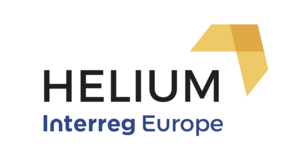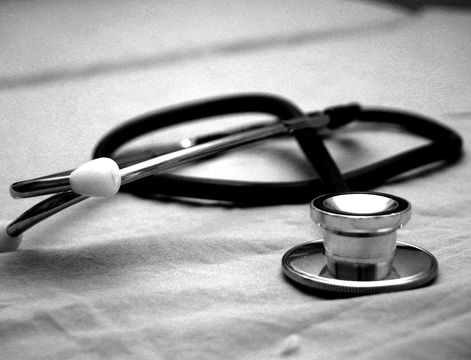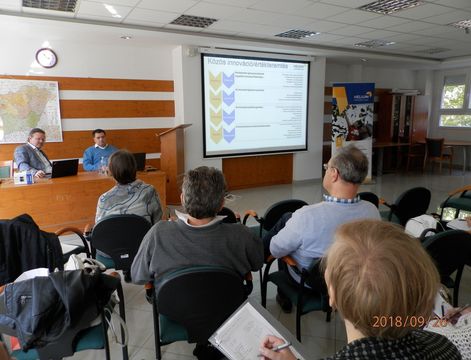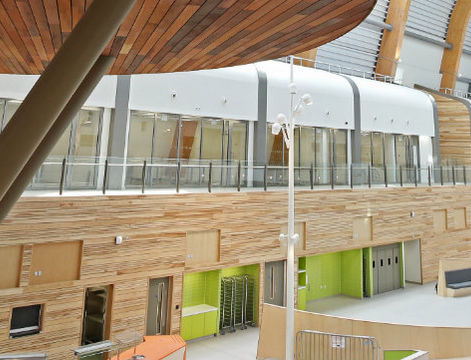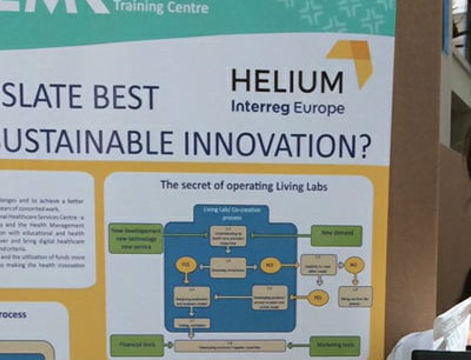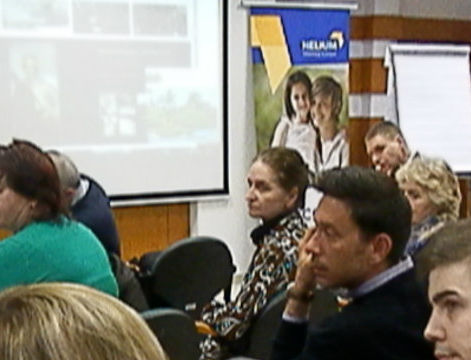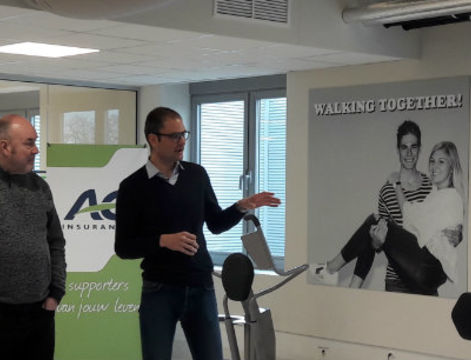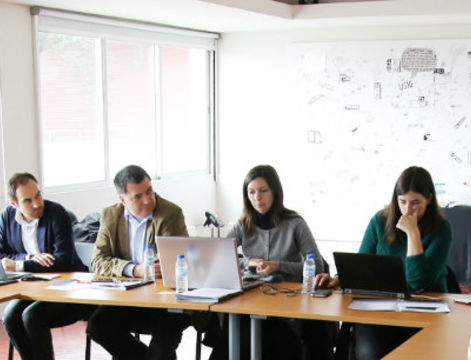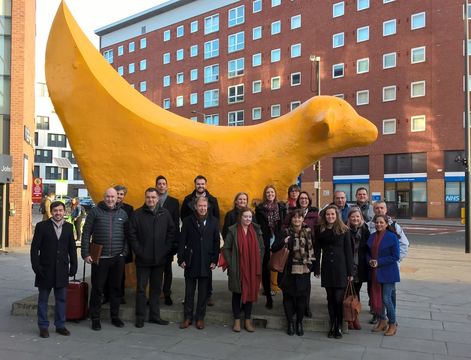From the 19th till the 21st of February, 2018, the Helium project engaged in its second round of the Staff Exchanges following the initial round in Liverpool earlier in the year. These Staff Exchanges allow for deeper analysis of the Good Practices which have previously been identified over the course of the project to uncover and provide additional insights in the practical functioning of (relevant features of) a Good Practice. Representatives from Hungary and the Netherlands engaged in this activity and were hosted by our Portuguese project partners.
The programme which was prepared for us focussed on two Good Practices which have been provided as input into the project, RESOLVE and HAITool.
RESOLVE is a consistent and effective ignition program to promote seed projects and start-ups in the health sector, boosting the translation of innovative ideas into business ventures and thus, value creation. The programme consists of three central actions; the development of tools to address obstacles in the valorisation of knowledge in the healthcare and biomedical domains (RESOLVE Toolbox), the selection of seed and technology based projects in the health sector in the Norte region of Portugal, and to provide these selected projects with targeted support using the RESOLVE Toolbox, maximizing their consolidation and commercial potential.
On the other hand we further explored HAITool – “A Toolkit to Prevent, Manage and Control Healthcare Associated Infections in Portugal”. Healthcare-associated infections (HAIs) are a major cause of morbidity and mortality worldwide and have a significant economic impact. Prevention and education are key strategies for the control of HAIs and this has been raised to a new level by the Portuguese Institute of Hygiene and Tropical Medicine of the Universidade Nova de Lisboa through the HAITool project. The main objective of this project is the designing of a toolkit (as an operational framework) to support health professionals to improve prevention and treatment of HAIs and antimicrobial resistance. The toolkit includes a combination of a set of guidelines to implement Antibiotic Stewardship Programs and the support of ARTEMIS, an information system which supports decision-making.

Parallel to developing a more profound understanding of these Good Practices, the participants were also able to discover more about other interesting and relevant organisations and initiatives which are taking place in the Norte region. Visits to INESCTEC – Institute for Systems and Computer Engineering, Technology and Science – and CMIN – the Maternal and Child Care Centre of the North were also foreseen.
If you would like to know more about one or more of these Good Practices or other please do not hesitate to contact the Helium partnership!
